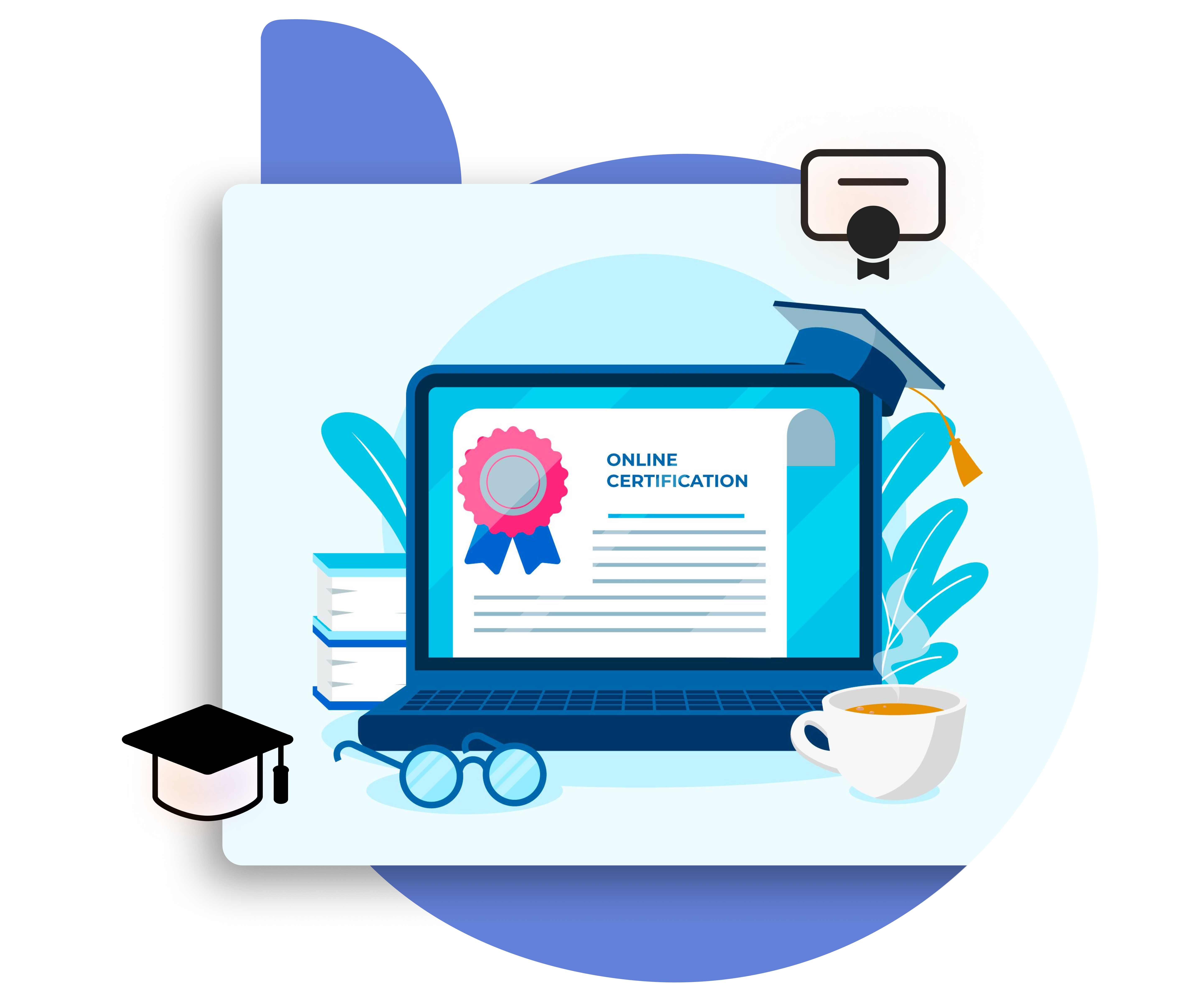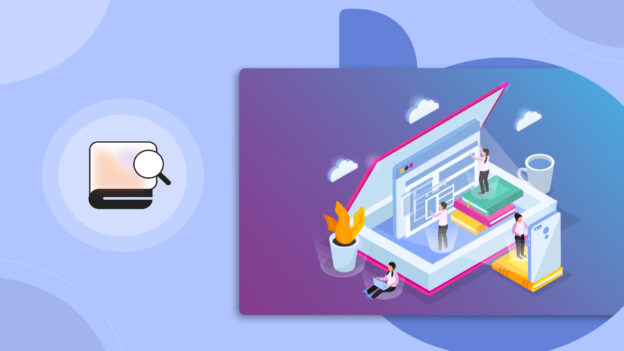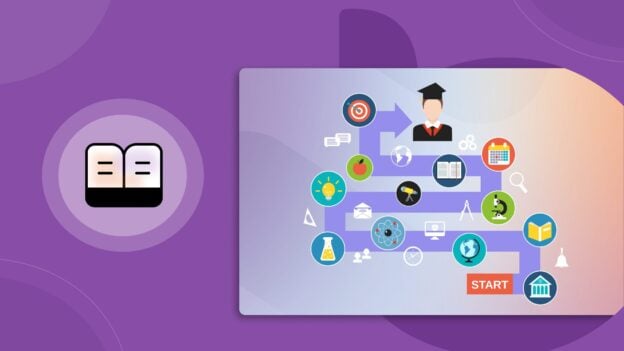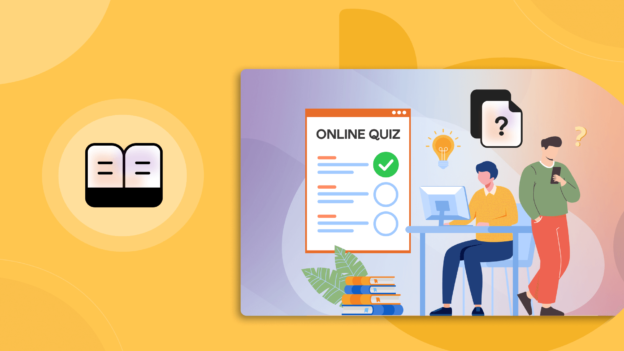Automation is rising. Skills are evolving fast. What got you hired yesterday might not land you the dream job tomorrow. Consequently, a continuing education certificate is your key. It will help you navigate these changes
In this blog, we’ll cover continuing education. We’ll explore how they can be your secret to success. We’ll answer the burning questions. What is a continuing education certificate? How do you earn it? Why is continuing education so important now? And, how can you find the perfect program to fit your needs and propel your career forward? So, buckle up. Get ready to unlock your full potential. Let’s learn more about continuing education certificates!
Firstly, What is a Continuing Education Certificate?
A continuing education certificate is a non-degree. Additionally, you can earn it by finishing a course or program for professional growth. Also, you can get these certificates by taking courses. You can also get them by going to conferences or workshops.
Understanding Continuing Education Certificate (CEUs)

CEUs are your way of lifelong learning. To recognize the learning, CEU is a type of formal degree. They also show that you’ve invested time and effort. You did this by learning new skills. You learn them in specific courses or programs.
How Much CE is Enough?
One CEU is 10 hours of taking part in a certified program. However, some programs might award partial CEUs. The requirements can vary by your field. They also vary by the involved licensing or certifying bodies. Therefore, it’s crucial to check the requirements for your profession.
Earning Your CE Bounty
Now, let’s look at the exciting ways you can get these valuable certificates and units:
Attending Courses
- Traditional Classroom Courses: Immerse yourself in a dynamic environment. You’ll have face-to-face interaction. These courses often include hands-on learning. They also include real-time feedback from instructors.
- Online Courses and Modules: Enjoy the freedom of online learning. Tailor your education to your schedule. Online courses come in many formats. They range from self-paced modules. They go to webinars led by industry experts.
Participating in Conferences
- Industry-Specific Conferences: Network with peers. Gain insights from top professionals. Stay up-to-date on the latest trends in your field.
- General Skill Development Conferences: Hone your transferable skills. These skills include communication. They also include leadership and project management. You can do this at conferences. They focus on professional development across industries.
Workshops and Seminars
- Focused Skill-Building Workshops: Become an expert in a specific area. Do this through intensive, hands-on workshops. These workshops give you practical skills.
- Industry Trend and Knowledge Update Seminars: Stay ahead of the curve. Attend seminars about current trends. Learn new knowledge in your industry.
Why is a Continuing Education Certificate Important?
To keep up with the changing world, you must keep learning. Do so throughout your life. Technology and knowledge are evolving. You may already have outdated what you learned in school a few years ago. Continuing your education will help you keep up and be more qualified for jobs.
Staying Relevant in a Changing World
Keeping Up with Technological Advancements
For instance, Imagine a doctor relying only on medical knowledge from a decade ago. Technology is revolutionizing industries. Now, healthcare professionals use AI for diagnostics. Manufacturers use automation in manufacturing. Taking certificate programs ensures you have the skills. It also ensures you have the knowledge. They will let you thrive. The landscape is ever-shifting.
- Similarly, updating is key in marketing as well. You must stay on the latest social media algorithms. You also need to know the latest analytics tools. They are key to making effective campaigns.
Updating Your Knowledge Base
Facts are evolving. Best practices in the industry can shift. Continuing education lets you refresh your knowledge. It ensures you use the most up-to-date info and methods.
- For example, lawyers can take courses on new legal rulings. They cover changes in regulations. These help lawyers stay sharp.
Expanding Your Skillset and Interests
Developing New Skills
Continuing education is not only about refreshing what you know. It’s a springboard for acquiring new skills that can make you a more valuable asset.
- For example, let’s say that you’re a graphic designer. But, you want to learn new animation software. As a result, you want to expand your services. Also, let’s say you’re a customer service representative. But, you want to learn coding to become a software developer. Continuing education makes these possibilities a reality.
Acquiring Soft Skills Like Communication and Leadership
Technical skills matter. But, soft skills are also valuable. They include communication, teamwork, and problem-solving. Many programs focus on improving these key soft skills. They are part of continuing education. They make you a more well-rounded pro.
Exploring New Areas of Knowledge
Continuing education isn’t limited to career-related topics. You can take courses in areas that interest you. For example, you can learn a new language. Also, you can explore photography. Additionally, you can dive into astrophysics. It broadens your horizons. It can also spark passions and lead to great hobbies.
- Let’s say you’ve always found coding fascinating. But, you never had a chance to learn. Or, say you want to improve your French. You could take a weekend course for a future trip to Paris. Continuing education empowers you. It lets you explore these interests. As a result, it enriches your life beyond your career.
Types of Continuing Education Certificate Programs
Understand the key concepts in your field. Also, learn the key practices. These programs can help you stay ahead of the curve and become a recognized expert.
Professional Development Programs
These programs are for professional development. They refine your expertise and knowledge in your field. The programs also give you the latest tools and strategies. They also cover the best practices. As a result, they will help you do well in your role and navigate the changing industry.
Benefits of Professional Development Programs:
Enhancing Your Expertise in Your Current Field:
You need to understand key ideas and practices in your field better. These programs can help you stay ahead of the curve. As a result, you can become a recognized expert.
Building a Strong Network of Professionals
Many training programs have networking opportunities. They let you connect with peers. You can share ideas and build work relationships.
Examples of Professional Development Programs (by field):
- Business Professionals
- Project Management Certification Courses
- Leadership Development Programs
- Business Communication Workshops
- Software Developers
- Coding Bootcamps
- Software Development Certification Courses (e.g., Java, Python)
- Cybersecurity Training Programs
- Healthcare Workers
- Continuing Medical Education (CME) Courses.
- Advanced Cardiac Life Support (ACLS) Training.
- Nursing Leadership Programs.
Occupational Certification Programs
Some jobs need specific certifications. They are for legal practice. The programs provide the knowledge and skills. To pass the required exams, you need to take them. They also provide the credentials. You need them for your field.
Importance of Occupational Certifications and Licenses:
1. Meeting Legal Requirements for Certain Professions
In jobs like accounting, nursing, or as an electrician, you must have a valid license. It is a must for legal practice.
2. Demonstrating Expertise and Credibility to Employers
Earning relevant certifications shows your dedication. It shows your dedication to your profession. It sets you apart from other candidates. This can also improve your ability to get a job. It can also increase your potential earnings.
Examples of Occupational Certification Programs (by field):
- Accounting
- Certified Public Accountant (CPA) Licensure
- Information Technology (IT)
- CompTIA A+ Certification
- Network+ Certification
- Security+ Certification
- Healthcare
- Certified Nursing Assistant (CNA) Licensure
- Licensed Practical Nurse (LPN) Licensure
- Registered Nurse (RN) Licensure
Non-Credit College Degrees
More colleges offer non-credit certificate programs. The number is growing. They are for continuing education. The programs aim to give learners targeted skills. These skills are valuable at work. The programs are also shorter. They are also more focused. They let you gain specialized knowledge in a specific area. You don’t need the time commitment of a full degree.
- For example, a non-credit college program in data analytics could give you the skills. With them, you could enter the growing field of data science. A program in digital marketing could help you become an expert. It focuses on social media marketing and SEO.
Personal Enrichment Programs
Continuing education isn’t limited to career advancement. Enrichment programs allow you to explore hobbies. You can develop new skills outside your job. This will enhance your well-being. These programs can range from learning a new language. Or, they can take a photography course. They can also be doing creative writing. Or, they can explore personal finance.
- Benefits: Enrichment programs can spark new passions. They also reduce stress and boost your sense of fulfilment. They can also help you meet like-minded people. Also, they can help you build a full life outside your career.
Remember, this is not a full list. Many industries offer continuing education programs. We only created the list to help you give an idea.
Where to Earn a Continuing Education Certificate
Now that you know the value of Continuing Education. You might wonder: where can I earn such certifications? Here are some ways you can earn a certificate. It is for continuing education.
1. Universities and Colleges
- Traditional In-Person Programs
- The classic classroom setting offers structured learning. Students get to interact face-to-face with instructors and peers. This encourages active participation. It also allows for live feedback. Additionally, the chance to build strong professional networks.
- Benefits: In-person programs have some benefits. They are great for discussions, group projects, and hands-on learning. But, these things are hard to do online.
- Online Learning Options (MOOCs, etc.)
- Embrace the ease and flexibility of online learning. Universities and colleges often offer MOOCs. They also offer other online programs. Additionally, they let you learn at your own pace and schedule. No matter where you are. Hence some prominent universities like MIT also offer remote learning opportunities.
- Advantages: Online options are cheaper than traditional programs. They let you learn from anywhere with an internet connection.
2. Government Organizations
Many government agencies offer certificate programs. The programs are for continuing education. They are for specific professions. Industry professionals design the programs. They design them to stay current. So, they cover rules, best practices, and new trends in their fields.
- Examples: The CDC offers training courses. Public health professionals can take them. Also, construction workers can learn more about safety from OSHA courses.
3. Online Course Platforms
The internet has revolutionized learning. There are a lot of online course platforms like Udemy, Coursera, EdX, and Skillshare. The platforms have vast libraries of certificate courses. Thus, they cover many topics. They also cater to diverse interests and career goals.
- Popular Platforms:
- Udemy: They offer many cheap courses. They cover various subjects and focus on practical skills.
- Coursera: They provide top-quality courses. They come from top universities and industry leaders. They often have certification options.
- EdX: Features in-depth programs from prestigious institutions. Many courses also offer college credit.
- Skillshare: ideal for exploring creative skills. These include photography, animation, and design.
- Unique Features of Each Platform: Each platform has unique features. Consider factors. These include course content and instructor expertise. Also, consider pricing models. Consider certificates when choosing.
- Finding the Right Platform for Your Needs: Consider your learning style. Also, think about your budget and the course options. These are important. They help with choosing the right platform. It’s for continuing education.
Conclusions
Today’s job market is dynamic. Staying relevant requires continuous learning. Continuing education (CE) has many benefits. It keeps you up-to-date on technology. It also helps you learn new skills and find new passions.
In this article, we explained what a continuing education certificate is. We also covered the many ways to earn them. You can find a fit for every style and budget. They also range from classroom courses to online platforms. The platforms include Udemy and Coursera.
Remember, lifelong learning is an investment in your future. Explore the mentioned resources. These include trade groups. They also include lists on the web. Use them to find the program that fits your career goals. Take the first step today and unlock your full potential!













“A Continuing Education Certificate explained briefly. Learn why it’s essential for ongoing professional development. Thank you for highlighting its significance!”
Thank you, theindianelectrician. We have a lot of articles related to online learning. Hope you will also like those articles as well.